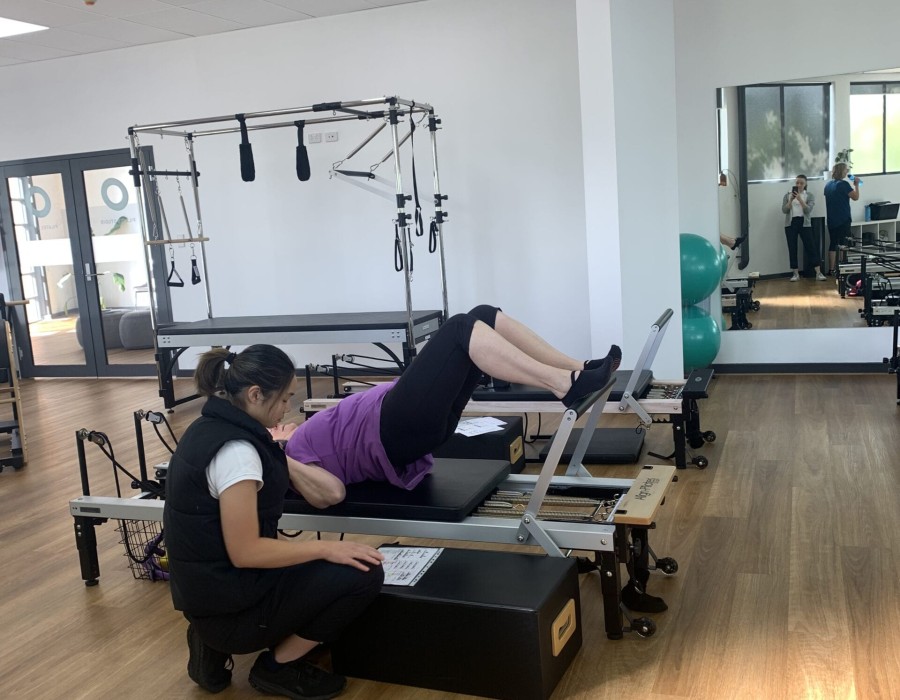Physiotherapy, often referred to as physio, is a vital healthcare profession dedicated to improving and restoring physical function and mobility in individuals facing pain, injury, or physical challenges. For those seeking expert care, Physio Beverley offers comprehensive treatment options tailored to a wide range of conditions, ensuring patients regain their strength and quality of life. This article explores what physiotherapy truly entails, how it works, and the diverse treatment modalities involved, providing a clear understanding of its significance in modern healthcare.
What Is Physiotherapy?
Physiotherapy is much more than just exercise routines; it is a holistic approach aimed at assessing, diagnosing, and treating physical impairments, disabilities, and pain. The goal is to restore movement, reduce pain, and improve overall function, whether the issue stems from an injury, surgery, or chronic condition. This field has evolved tremendously over the past decades, incorporating advanced techniques and therapies that address not just the symptoms but also the underlying causes of physical dysfunction.
At its core, physiotherapy involves a combination of exercise therapy and electrotherapy, along with manual techniques such as mobilization, manipulation, and manual therapy. These methods work together to target stiff joints, sports injuries, chronic pain, posture-related problems, and even complications arising from illnesses like COVID-19.
The Scope of Physiotherapy Treatment
Physiotherapy covers a vast spectrum of treatment areas, making it an indispensable part of healthcare. Its scope includes, but is not limited to:
- Exercise Therapy: Customized exercise programs designed to improve strength, flexibility, endurance, and coordination. This is essential for rehabilitation following injuries or surgeries, as well as for managing chronic conditions.
- Electrotherapy: The use of electrical modalities such as laser therapy, interferential therapy (IFT), electrical stimulators, and traction devices to promote healing, reduce pain, and enhance muscle function.
- Manual Therapy: Hands-on techniques including joint mobilization, manipulation, and soft tissue massage to relieve stiffness, improve joint mobility, and reduce pain.
- Post-Surgical Rehabilitation: Physiotherapy plays a crucial role in recovery after surgeries such as arthroscopy, joint replacements, and cardiac surgeries, helping patients regain function and return to daily activities.
- Sports Injury Management: Specialized care for athletes to treat injuries, improve performance, and prevent future injuries.
- Cardiac Rehabilitation: Tailored physiotherapy programs designed to support recovery after cardiac surgeries like coronary artery bypass grafting (CABG) and valve replacements.
Exercise Therapy: More Than Just Movement
Exercise therapy is a cornerstone of physiotherapy but it is much more than simply prescribing exercises. It involves a detailed assessment of the patient's condition, followed by the development of a targeted exercise plan that addresses specific issues such as muscle weakness, joint stiffness, or poor posture.
These exercises are carefully monitored and progressively advanced to ensure safe and effective recovery. For example, in cases of sports injuries, exercise therapy not only aids healing but also focuses on strengthening the muscles and improving balance to reduce the risk of recurrence.
For chronic problems like back pain or postural imbalances, exercise therapy helps in correcting faulty movement patterns and improving overall body mechanics, which leads to long-term relief and improved quality of life.
Electrotherapy: Harnessing Technology for Healing
Electrotherapy is an advanced component of physiotherapy that uses electrical energy to stimulate tissues, reduce pain, and promote healing. Some of the common electrotherapy modalities include:
- Laser Therapy: Uses focused light energy to reduce inflammation, stimulate tissue repair, and alleviate pain.
- Interferential Therapy (IFT): Utilizes low-frequency electrical currents to relieve pain and improve circulation.
- Electrical Stimulation: Helps activate muscles, reduce spasms, and improve muscle strength.
- Traction: A technique to gently stretch the spine or other joints to relieve pressure and improve mobility.
These modalities are often used in combination with exercise therapy to enhance treatment outcomes, especially in cases involving chronic pain, nerve injuries, or post-surgical rehabilitation.
Manual Therapy: The Healing Power of Hands
Manual therapy encompasses a variety of hands-on techniques that physiotherapists use to manipulate joints and soft tissues. This includes mobilization and manipulation aimed at improving joint range of motion and reducing stiffness.
Manual therapy is particularly beneficial for patients with stiff joints resulting from arthritis, sports injuries, or prolonged immobilization. It helps restore normal joint function, reduce pain, and improve the patient’s ability to perform daily activities.
Soft tissue techniques such as massage can also relieve muscle tension, improve circulation, and promote relaxation, contributing to overall well-being.
Role of Physiotherapy in Post-Surgical Rehabilitation
Physiotherapy is a critical component of recovery after various surgical procedures. Whether it is an orthopedic surgery like arthroscopy or joint replacement, or cardiac surgeries such as CABG or mitral valve replacement, physiotherapy helps patients regain strength, mobility, and independence.
After joint replacement surgeries, physiotherapy assists in restoring joint function, reducing pain, and improving muscle strength around the new joint. The focus is on gradual progression of activities, ensuring that the patient safely returns to everyday life.
In cardiac rehabilitation, physiotherapy programs are designed to improve cardiovascular fitness, enhance respiratory function, and promote overall health. These programs are personalized and closely monitored to suit the patient’s condition and recovery status.
Physiotherapy for Chronic and Postural Problems
Chronic pain and posture-related issues are common concerns addressed through physiotherapy. Poor posture can lead to muscle imbalances, joint strain, and chronic discomfort. Physiotherapists assess posture and movement patterns to identify the root causes and develop corrective strategies.
Through targeted exercises, manual therapy, and ergonomic advice, patients learn how to maintain proper posture and reduce strain on affected areas. This is particularly important for individuals with sedentary lifestyles or those who spend long hours working at desks.
Chronic pain conditions such as lower back pain or neck pain often benefit from a multidisciplinary approach involving exercise therapy, electrotherapy, and manual techniques to manage symptoms and improve function.
Emerging Areas in Physiotherapy
Physiotherapy continues to evolve with ongoing research and technological advancements. New treatment modalities are constantly being explored to enhance patient outcomes. For instance, the role of physiotherapy in managing post-COVID-19 complications has gained prominence, helping patients recover respiratory function and physical strength after prolonged illness.
Additionally, the integration of digital tools, tele-rehabilitation, and personalized therapy plans is transforming how physiotherapy services are delivered, making them more accessible and effective.
Why Choose Physio Beverley?
Choosing the right physiotherapy provider is essential for effective treatment and recovery. Physio Beverley stands out for its comprehensive approach, combining traditional and advanced therapies to address a wide range of physical health issues.
With experienced therapists who tailor treatment plans to individual needs, patients receive focused care that promotes healing, restores function, and prevents future injuries. Whether you are recovering from surgery, managing a chronic condition, or seeking help for a sports injury, Physio Beverley offers expert guidance every step of the way.
Conclusion
Physiotherapy is a dynamic and multifaceted healthcare profession that plays a crucial role in managing pain, restoring movement, and improving quality of life. Through a combination of exercise therapy, electrotherapy, manual techniques, and personalized rehabilitation programs, physiotherapy addresses a wide variety of conditions ranging from sports injuries and chronic pain to post-surgical recovery and cardiac rehabilitation.
For those in need of expert physical therapy services, Physio Beverley provides a comprehensive and patient-centered approach that ensures lasting results and a return to optimal health. Embracing physiotherapy not only helps in healing but also empowers individuals to take control of their physical well-being for the long term.






Comments